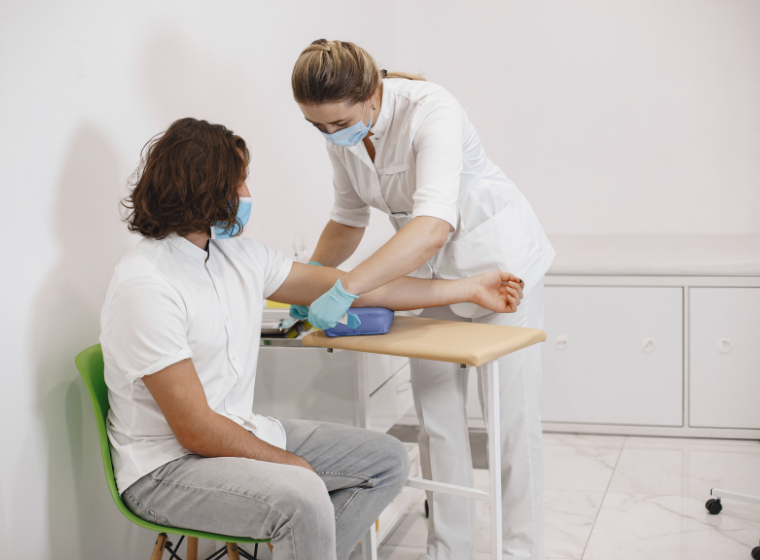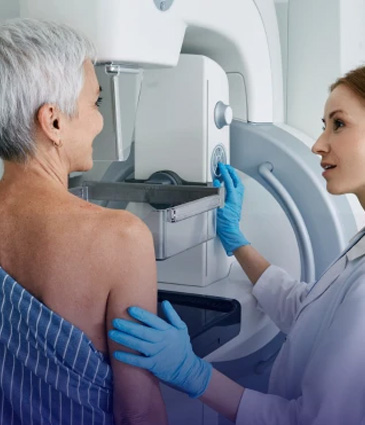
Should You Get a Full Body Checkup?
Health is one of the most valuable assets we have, yet many people only visit a doctor when they feel unwell. A full body check-up is a proactive way to monitor your health, detect potential issues early, and ensure that your body is functioning at its best. Instead of waiting for symptoms to appear, this comprehensive screening provides a clear picture of your overall health, including risk factors for serious conditions such as heart disease, diabetes, and even cancer, as well as the function of crucial organs.
What is a Full Body Checkup?
A full body checkup is a thorough medical examination that involves a number of tests and screenings to assess your general health. It typically covers:
- Blood tests – To assess cholesterol levels, diabetes, and infections.
- Heart health assessments – including ECG, blood pressure, and cholesterol levels.
- Liver and kidney function tests – To guarantee the optimal functioning of these essential organs.
- Cancer screenings – Such as tumor markers and imaging tests.
- Imaging tests - ultrasound, X-rays, or MRI, to detect internal abnormalities.
- Hormonal and metabolic tests – To assess thyroid function and overall metabolism.
The goal is to detect diseases at an early stage, even before symptoms appear, and take preventive measures accordingly.
Your doctor can help you decide if a full body checkup is right for you. They will consider your age, medical history, and any risk factors you may have.
Who Should Get a Full Body Checkup?
A full body checkup is beneficial for everyone, but certain groups may need it more than others:
- People above 30 – As we age, our bodies undergo changes that can lead to health issues. Routine checkups help track these changes and can prevent serious health issues that may arise if left undetected.
- Individuals with a family history of diseases – If you have conditions like diabetes, heart disease, or a family history of cancer, routine screenings can help identify risks early.
- Those with a busy lifestyle – A poor diet, excessive stress, and inactivity can worsen serious conditions. A full body checkup can reveal hidden health concerns.
- People with pre-existing medical conditions – If you already have conditions like hypertension, diabetes, or thyroid issues, regular monitoring is crucial.
Benefits of a Full Body Checkup
Many people ignore their health until problems arise, but a full body checkup offers several advantages:
1. Early Disease Detection
Many illnesses, such as high blood pressure, diabetes, and even cancer, show no symptoms in their early stages. A full body checkup can catch these conditions early, allowing for timely treatment.
2. Prevention is Better than a Cure
Regular health checkups help identify risk factors before they become serious health issues. Doctors can suggest lifestyle modifications or treatments to prevent future complications, providing you with a sense of reassurance and relief.
3. Saves Long-Term Medical Costs
Early detection and prevention reduce the risk of expensive treatments down the line. Catching a disease early often means less invasive and more affordable treatment options are available, providing you with a sense of financial security.
4. Improves Quality of Life
Staying on top of your health helps you feel better, have more energy, and maintain a good quality of life. A healthy body supports an active and fulfilling lifestyle.
How Often Should You Get a Full Body Checkup?
A number of variables, such as age, health condition, and medical history, determine a full body checkup frequency:
- 20s & 30s: Once every 2-3 years if you have no health concerns.
- 40s & 50s: Every 1-2 years, especially if you have a family history of chronic illnesses.
- 60 and above: Annually, as aging increases, the risk of various diseases increases.
- People with chronic conditions: More frequent checkups as advised by a doctor.
What to Expect During a Full Body Checkup?
A full body checkup usually involves a visit to a healthcare facility where various tests are conducted. Here’s what you can expect:
- Consultation: A doctor evaluates your lifestyle and medical history.
- Physical Examination: monitoring blood pressure, heart rate, and body mass index (BMI).
- Laboratory Tests: Tests for infections and organ function are performed using blood and urine.
- Imaging Tests: X-rays, ultrasounds, or MRIs if needed.
- Specialized Screenings: Depending on age and risk factors, additional screenings, such as cancer markers or heart function tests, may be performed.
Full Body Checkup Costs & Availability
The cost in Turkey for a full body checkup varies based on the medical facility and the number of tests included. Turkey is a top destination for people looking for high-quality healthcare at a reasonable cost because full body checkup prices are very competitive there. Many top-tier hospitals and clinics offer comprehensive packages that include advanced diagnostic tests and expert consultations.
Conclusion
A full body checkup is a simple yet powerful way to take control of your health. It offers peace of mind, helps in early diagnosis, and prevents future health complications. Investing in regular health checkups means investing in a healthier, longer, and more fulfilling life.
- Addiction ( 27 )
- Bariatric ( 2 )
- Cardiology ( 10 )
- Check up ( 45 )
- Ear Nose & Throat ( 1 )
- Eye Care ( 2 )
- General Surgery ( 3 )
- Gynecology ( 6 )
- Hematology ( 2 )
- IVF ( 19 )
- Neurosurgery ( 5 )
- Oncology ( 10 )
- Orthopedics ( 8 )
- Physiotherapy ( 1 )
- Plastic & Beauty ( 7 )
- Stem Cells & Longevity ( 19 )
- Transplantation ( 4 )
- Urology ( 7 )







